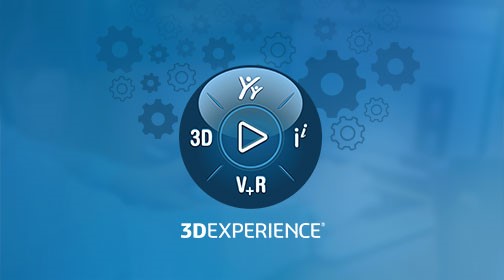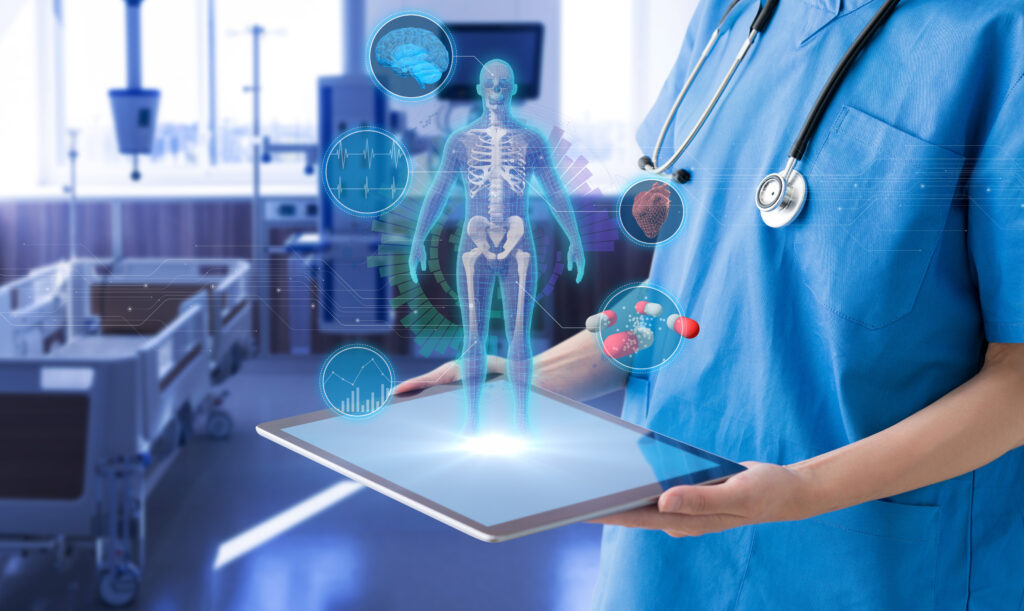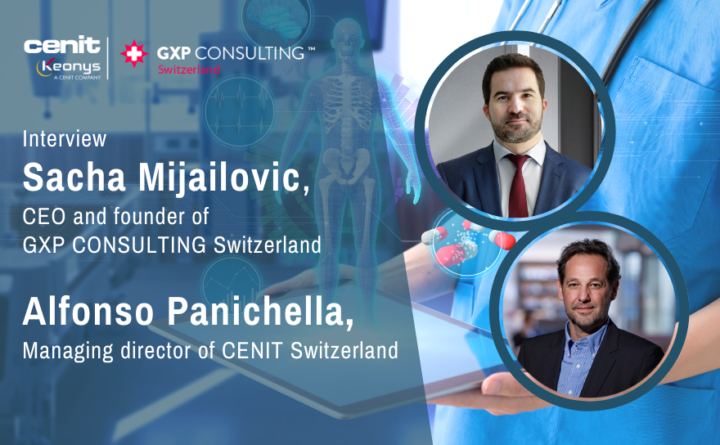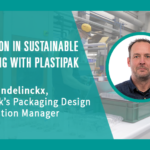Or how to combine digital technologies and value-added consulting to boost innovation in the life sciences industry (focusing on Medical Devices)
The life sciences industry is facing major challenges such as increasing regulatory standards and pressure from regulatory bodies, the boom of generic products, the number of patent expiries, the end of the so-called “blockbuster model”, the pressure on R&D departments to deliver more, and pressure on prices and profitability. The role of GXP Consulting Switzerland is to provide high-quality support to its clients in order to deliver safe and efficient products on time. As the leading partner for Dassault Systèmes’ digital solutions worldwide, CENIT designs and builds digital processes to help its clients achieve technological leadership. The combination of these two complementary levels of expertise is a driver for collaborative innovation and a performance booster in this fast-moving global market.
In 2019, the global drug market was valued at $1.106 trillion (around €977 billion), with the United States (the world’s leading market) accounting for 47.5%. With Switzerland being home to two of the world’s three largest pharmaceutical companies, Europe’s share reaches 23%. Switzerland’s market share is significant, with the country clocking in 79.3% of worldwide sales. And the challenges are as monumental as the figures. As the world moves towards a global race in research and producing and selling new vaccines on a mass scale, the way forward relies on bringing together leading names in an extensive ecosystem.
The need to reinvent the pharmaceuticals industry

Innovation is key here, serving as the sector’s core strategic lever for reinventing itself and stimulating growth. Blockbusters – or highly innovative flagship products aimed at ‘specialty diseases’ – are dominating the market, raking in colossal revenue for patent owners. Developing generic drugs is game-changing for laboratories: the moment a drug’s patent is released, its price plummets. And yet investment in research and production continues to weigh heavily. Anticipating and cutting costs in the development of a drug and times to market, all in compliance with the heightened standards of the regulatory authorities tasked with assessing the risk/benefit balance, rely on organizations interacting with experts in the pharmaceuticals sector and digital transformation within the industry.
A partnership with high added value
GXP CONSULTING Switzerland is a consulting company that specializes in life sciences and assists its clients throughout their products’ lifecycles. A leading name in French-speaking Switzerland and highly active in the country’s German-speaking regions and the canton of Ticino, this young company has honed razor-sharp expertise in a context dominated by safety, security, and stringent regulations. Its four areas of expertise revolve around biotechnology, pharmaceuticals, medical devices, and combined products. The company aims to conquer new market shares in Switzerland in the near future, and in Europe over the medium term. CENIT has garnered a solid international reputation in digital transformation among manufacturers of all sizes, across all sectors. It sets up business processes to manage all of a company’s data, accelerate research, and shorten design, development, and manufacturing stages to ensure innovative services and products are put to market quickly. Harnessing digital technology is an undeniable boon for innovation in the pharmaceuticals industry, allowing companies to operate within a connected, collaborative setting that enables them to digitally model, calculate, analyze, simulate and oversee countless amounts of data over the course of products’ lifecycles.
A five-question joint interview with Sacha Mijailovic, Managing Director and Founder of GXP CONSULTING Switzerland and Alfonso Panichella, Managing Director of CENIT Switzerland. Drawing on backgrounds that are as different as they are inspiring, they share what prompted them to combine their expertise, injecting it into a market forced to juggle industrial, economic, and societal challenges, in which an increasing number of public opinion leaders are taking an interest.
1.What sparked the decision to join forces?
Sacha Mijailovic: I’m a scientist by training, and I spent a number of years working in major pharmaceuticals groups. It was an enriching experience that put me face to face with key questions in life sciences, and equipped me with genuine industry know-how. The end of the “blockbusters” model, meaning flagship drugs that generate over $1bn in sales every year, was a major paradigm shift for the traditional pharmaceuticals industry. The competition with generic drugs is becoming tougher and tougher, and counterfeiting is rising at a worrying pace. Alongside this, the medical device sector is booming too, particularly in terms of combined products that feature a substance which, used separately, could be considered to be a drug.

This industry is also coming up against major technological and regulatory challenges. The spark for me was the dawning of this new era. I founded GXP CONSULTING Switzerland in Lausanne in 2014 with a view to pursuing my work in a setting designed on a human scale that facilitates exchange and cohesiveness between teams.
Because I know the market inside out, my vision of consulting focuses on ultra-specialization with the aim of providing my clients with incredibly high added value. The company is now home to seventy European consultants, most of whom have a scientific background (engineers, PhD graduates, industrial pharmacists), prepared to take on a market with more stringent standards and tighter frameworks than ever before. The Swiss market alone encompasses close to 1,300 companies specializing in life sciences.
Alfonso Panichella: Founded in 1988 and based in Stuttgart, CENIT specializes in product lifecycle management. Its founders were visionaries and firm believers in the new challenges inherent to the industrial age, who succeeded in bringing together a stable of talent to create what is now Dassault Systèmes’ leading global partner. Home to over eight hundred employees in nine countries, spread over three continents and twenty-seven agencies, we support companies through the digital transformation process. Our target market includes clients in the automotive, aeronautical, engineering, industrial equipment, consumer goods, and financial services industries: an industry-centered portfolio that has been overhauled over the past few years to align with a modern dynamic. I’m an industrial engineer with a minor in economics, and I’m responsible for development in the Swiss market. We’re seeing a definite increase in PLM solutions being rolled out in the medical device sector over the past few years and, spurred on by our clients’ glowing feedback on their experiences, we have decided to intensify our activities in the life sciences sector.
2.What is the biggest factor driving innovation in the pharmaceuticals and medical device industry?
Sacha Mijailovic: Over the past few years, the traditional pharmaceuticals industry has only made minimal improvements to existing molecules, to the extent that innovation today is primarily happening in the biotechnology sector. Indeed, we’re seeing closer and closer ties being formed between classic “big pharma” and younger biotechnology companies. This sector spans all technology and applications that involve using or modifying living materials, notably with a view to creating drugs. As an example, we’re seeing major expansion in monoclonal antibodies, which draw on a complex manufacturing process underpinned by genetic engineering and cell culture, and which enable targeted treatments and precision medicine. These are living, complex interactions to be managed, which is why innovation can be used in biotechnology to arrive at new forms of treatment.
Medical devices, meanwhile, are coming up against sizeable challenges such as compliance with the new MDR and IVDR regulations, and how their data and documents are used and traced. Digital transformation is becoming crucial in this sector, too.
 Alfonso Panichella: Our activity focuses primarily on medical devices. The biggest hurdles our clients face are shedding light on the many areas of improvement that exist to help this industry tackle its industrial and business challenges. Often, the various departments (Research & Development, Quality, Marketing, Regulations, and Subcontracting) work in silos, resulting in wasted time and repeated efforts that impact efficiency. Digitalizing a company‘s processes bolsters collaboration by centralizing all shared data, which is added in real-time by the company’s different departments. Furthermore, this sector is becoming increasingly complex, and standards in terms of quality assessment are tightening significantly. The solutions we implement give medical device manufacturers an efficient, effective way of managing and overseeing quality aspects, while improving traceability and QSR/GMP/ISO compliance.
Alfonso Panichella: Our activity focuses primarily on medical devices. The biggest hurdles our clients face are shedding light on the many areas of improvement that exist to help this industry tackle its industrial and business challenges. Often, the various departments (Research & Development, Quality, Marketing, Regulations, and Subcontracting) work in silos, resulting in wasted time and repeated efforts that impact efficiency. Digitalizing a company‘s processes bolsters collaboration by centralizing all shared data, which is added in real-time by the company’s different departments. Furthermore, this sector is becoming increasingly complex, and standards in terms of quality assessment are tightening significantly. The solutions we implement give medical device manufacturers an efficient, effective way of managing and overseeing quality aspects, while improving traceability and QSR/GMP/ISO compliance.
3.Quality and collaboration form the cornerstones of your work. Could you explain why?
Sacha Mijailovic: As an operational consulting company, we tackle and solve our clients’ issues on the ground, in order for them to get safe and effective products to market quickly. We have developed working methods based on best practices to support our clients throughout their products’ lifecycles. Internally, we hold ourselves to the same exacting standards, demanding we achieve the same level of quality we put into the work we do for our clients. Along with their passion for life sciences, our teams boast dual technical and regulatory expertise, rounded off with specific soft skills. We provide our services as early as the research and development stage, all the way through industrialization and manufacturing, and up to product distribution. We implement a series of methodological processes to control product quality and compliance in line with changing regulations. We assist our clients in submitting applications for marketing authorizations for their new products, as well as in day-to-day management aimed at safeguarding the quality of these products. We develop and validate manufacturing processes and qualify the equipment used, we optimize productivity via operational excellence, and we support investment projects such as setting up new plants, all while supporting them through their digital transformation.
 Alfonso Panichella: Our expertise involves developing and implementing digital processes throughout a product’s lifecycle to optimize costs and create a competitive edge. Our experts draw on their double business- and technology-specific expertise to guide our clients through the various key stages in developing a project, step by step and using cutting-edge digital tools to do so. Dassault Systèmes’ 3DEXPERIENCE® platform is a particularly ground-breaking solution, as it pools, centralizes, and coordinates all of a company’s talent. Its single repository interconnects all the key stages in a product’s lifecycle thanks to design, engineering, production, simulation, and management software solutions. Multi-site and multi-disciplinary collaboration inevitably leads to projects being rolled out in compliance with the countless requirements that need to be met. The health industry is becoming personalized. The goal is to develop a holistic approach to treatment and care that encompasses genomics, behavior, and environment via precision medicine. Dassault Systèmes’ 3DEXPERIENCE® collaborative platform is a way of managing and capitalizing on all pooled knowledge to create a virtual, connected ecosystem of people, data, and systems. It incorporates all business processes such as requirements management, project management, development management (DHF, DMR), quality (CAPA, NCR), claims, regulations for the certifications on the market and data management (changes, review, clearance).
Alfonso Panichella: Our expertise involves developing and implementing digital processes throughout a product’s lifecycle to optimize costs and create a competitive edge. Our experts draw on their double business- and technology-specific expertise to guide our clients through the various key stages in developing a project, step by step and using cutting-edge digital tools to do so. Dassault Systèmes’ 3DEXPERIENCE® platform is a particularly ground-breaking solution, as it pools, centralizes, and coordinates all of a company’s talent. Its single repository interconnects all the key stages in a product’s lifecycle thanks to design, engineering, production, simulation, and management software solutions. Multi-site and multi-disciplinary collaboration inevitably leads to projects being rolled out in compliance with the countless requirements that need to be met. The health industry is becoming personalized. The goal is to develop a holistic approach to treatment and care that encompasses genomics, behavior, and environment via precision medicine. Dassault Systèmes’ 3DEXPERIENCE® collaborative platform is a way of managing and capitalizing on all pooled knowledge to create a virtual, connected ecosystem of people, data, and systems. It incorporates all business processes such as requirements management, project management, development management (DHF, DMR), quality (CAPA, NCR), claims, regulations for the certifications on the market and data management (changes, review, clearance).
4.What are the advantages of a biotechnology expert joining forces with a specialist in digital transformation?
Sacha Mijailovic: As life sciences experts, we were on the lookout for a company specializing in digital software to get our clients set up with new industrial and working processes. CENIT‘s extensive international experience in rolling out digital solutions in the industry had us sold. This two-pronged expertise in both business and the product is an invaluable strategic asset in improving product quality and boosting growth among our clients, who range from start-ups and SMEs to multinational corporations.
Alfonso Panichella: The working methods that stem from PLM allow us to establish digital continuity across the entire product lifecycle, from idea, development, and design, to manufacturing and maintenance. Our clients’ needs are perfectly aligned with those of GXP CONSULTING Switzerland’s clients: reducing development and production costs for the fastest possible time to market for new products and services, in compliance with specifications. This complementary synergy with GXP CONSULTING Switzerland’s areas of expertise is a key driver for accelerating digital transformation in the pharmaceuticals, biotechnology, and medical device industries in particular.
5.Is the cloud a route forward for growth in life sciences?
 Sacha Mijailovic: The cloud is indeed one area for future development, particularly for our clients specializing in medical devices. Secured patient data is analyzed on the cloud to monitor adherence to patient dosing guidelines. This would be a good time to mention the importance of taking a wide-reaching approach to digital transformation as a whole. We sometimes note that life sciences industries have a tendency to use their digital tools in an uncontrolled way, that their lack of vision hinders effective management of their huge amounts of data. This is an issue that requires support in navigating cultural transformation within a company, and in using the right tools for communicating effectively.
Sacha Mijailovic: The cloud is indeed one area for future development, particularly for our clients specializing in medical devices. Secured patient data is analyzed on the cloud to monitor adherence to patient dosing guidelines. This would be a good time to mention the importance of taking a wide-reaching approach to digital transformation as a whole. We sometimes note that life sciences industries have a tendency to use their digital tools in an uncontrolled way, that their lack of vision hinders effective management of their huge amounts of data. This is an issue that requires support in navigating cultural transformation within a company, and in using the right tools for communicating effectively.
Alfonso Panichella: The ways in which we are organizing our working lives are changing. Online and remote collaboration, often in an international context, are on the rise. The use of digital tools is picking up speed in a number of industrial sectors, which points to the fact that working on the cloud is synonymous with agility, efficiency, and security. But these changes don’t just impact the tools used: they call for a company-wide strategy. By cutting back on IT infrastructure costs, companies are freeing up human resources they can inject back into innovation, to refocus on what they do best.
The aeronautical and automotive industries have been firm upholders of PLM for close to four decades now, and their results speak for themselves. They continue to evolve in order to take on their sector’s emerging challenges. The frantic rush to arrive at new treatments, regulatory authorities’ tightening standards, patent expiries, the boom in generic drugs, the pressure on R&D departments to crank out great products at high speeds, the profitability that is needed for future investments: the life sciences industry is coming up against multifaceted challenges in a highly competitive playing field. It is often at times of crisis that we progress the fastest. New collaborative and technological platforms are at the heart of the changes afoot in biotechnology, a sector that is increasingly embracing all things digital. Today, paradigms are shifting, and the race to achieve innovation for new treatments is reshuffling the deck. Research now relies on innovative platforms developed and enriched by an extensive ecosystem of partners working together to create progress for humanity. Pooling the expertise of a business expert such as GXP CONSULTING Switzerland and a technological specialist like CENIT clearly aims to support stakeholders in the health industry on the road to new successes.






